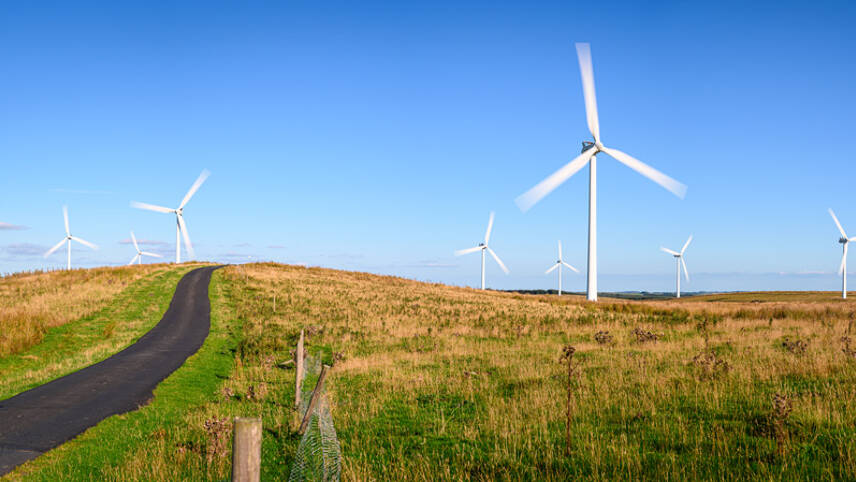Register for free and continue reading
Join our growing army of changemakers and get unlimited access to our premium content

Pictured: Green Rigg wind farm, Northumberland
An amendment to the Levelling Up and Regeneration Bill was first tabled earlier this week by Simon Clarke, the Conservative MP for Middlesborough South and East Cleveland, in a bid to end the de facto ban on new onshore wind. It has gained the backing of more than 20 Conservative MPs, with Clarke confirming the support of Johnson and Truss earlier today (25 November).
Clarke’s amendment would oblige the UK Government to alter planning rules for onshore wind farms within six months of the bill passing into law. These changes would permit onshore wind in communities where there is a high level of support. It has been extremely challenging to develop new onshore wind farms in the UK since 2014, due to a tightening of planning restrictions under then-Prime Minister David Cameron.
The Government did add onshore wind back into the Contracts for Difference (CfD) auction rounds’ eligibility criteria in 2020 under Johnson but planning restrictions were kept in place. Hence, it is very significant that Johnson is backing Clarke’s amendment.
Truss has repeatedly stated that she would support more onshore wind development despite her opposition to solar farms, particularly on agricultural land.
Clarke has stated that his amendment would result in a “pro-growth, pro-green policy at a time when we need both”. The UK Government is notably undertaking a review of its pathway to net-zero at present, in recognition of the fact that its current Net-Zero Strategy is unlawful and given Truss’s wish for a “pro-business, pro-growth, economically efficient” approach. Chris Skidmore MP is heading up this review.
Also of note is the fact that the UK published a new Energy Security Strategy this spring, headlined by a pledge for 95% of Britain’s electricity generation mix to be from low-carbon sources by 2030, rising to 100% by 2035. There was precious little support for onshore wind or solar, despite major capacity target increases for offshore wind, nuclear and hydrogen, plus a swathe of measures designed to boost North Sea oil and gas production.
Clarke has stated: “Whether or not to proceed with onshore wind [development] is a decision that should be made by local communities, rather than top-down from Westminster. It is the cheapest form of energy generation bar none. It will boost our energy security, help us on the path to net-zero and ease the cost-of-living squeeze just when we need it most.”
The Conservative Environment Network is supporting Clarke’s work here. Its Parliamentary Caucus now includes more than 100 Tory MPs.
The Levelling Up and Regeneration Bill was introduced in May and is currently in the report stage and third reading stage. The next meeting on the Bill will take place on Monday (28 November).
Another amendment that has caused drama this month was brought forward by former Environment Secretary Theresa Villiers. She, and around 50 other Tory MPs, want the Bill to include measures that would scrap mandatory housebuilding targets for local authorities in favour of an advisory-only measure.


Please login or Register to leave a comment.